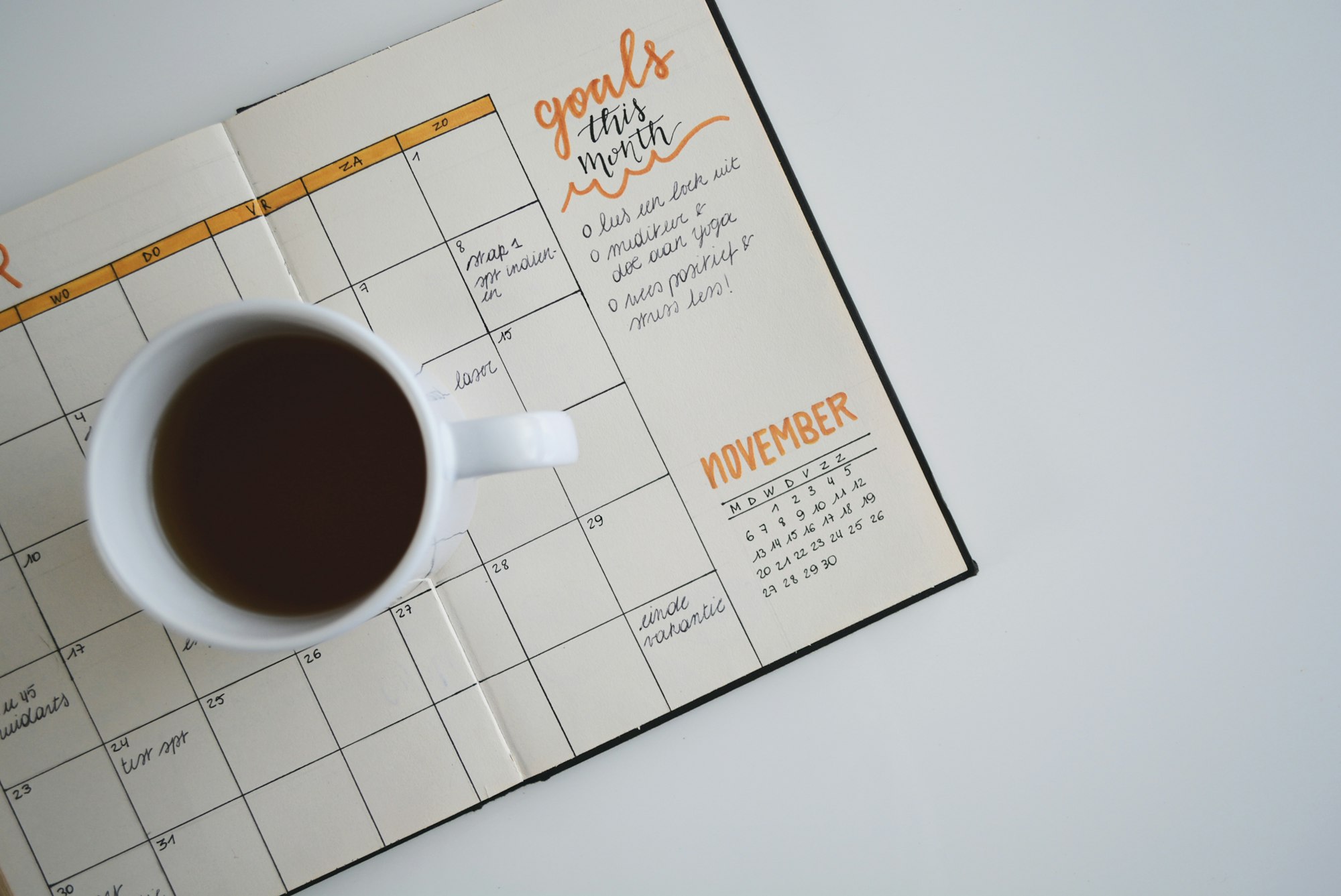Calendars can be pretty useful.
Staying at home a lot during 2020 has caused many of us to forget which day it is. Tuesday blends into Wednesday and the weekend appears seemingly at random.
Having a calendar on the desk, fridge or computer screen helps us remember what day it is, and what appointments we have on.
But rather than upgrading our productivity and helping us make sense of busy times, calendars can sometimes feel like they’re enslaving rather than freeing us.
So what if we could rethink the calendar to work for, rather than against, us? Could we have a more positive relationship with our daily sense of time?
Calendars help you frame creativity
Chase Jarvis, writing in his book Creative Calling, defends a scheduled routine as a critical part of creative work.
"A poet knows better than anyone the importance of timing and structure. I’ve learned through surviving a career’s worth of deadlines that a schedule is one of a creator’s greatest allies. It’s the most effective way to safeguard the time you can devote to creative work, protecting those minutes from all of life’s other demands.
It’s also a powerful tool for ensuring that you invest the necessary time in rest and recovery, sharpening your skillset, and building your community. If you’ve ever wondered how the most seasoned pros manage to juggle all these functions, the answer is: a calendar."
So if you’re a business leader who needs to consistently put out creative work (like writing, for example), you might benefit from a well-organised calendar. The argument against constant distraction is a strong one; it’s just too tempting to give in when one of our devices beeps or we notice that unread magazine on the desk.
‘Deep work’ time must be protected. That’s the time we spend in deep concentration or ‘flow’ - where we do our best thinking. It’s different to admin time; the periods where we’re just arranging things that need doing but don’t take up the limit of our abilities.
Scheduling things on a calendar surely helps with this - if we intentionally carve time out for creative work, it’s more likely to produce something great.
But what if we’ve been doing calendars wrong all this time? What happens when the calendar gives us more stress than it takes away?

The downside to calendars
Writer Aaron Z. Lewis thinks our metaphors for time show we don’t seek to protect it. We’re always ’squeezing in’ time for a meeting, or ‘grabbing’ time for a drink with friends, or ’setting up’ time like a piece of furniture. It’s something to be moved around at will, in service to whatever demands we make of it.
These metaphors, Lewis suggests, are encouraged by our digital calendar apps. They’re blank by default. A big white screen that’s waiting to be filled in.
"This is an especially bad default in the corporate world, where Gcal [Google calendar] has turned private calendars into a shared commons. Anyone can easily pull up your schedule, and the blankness-by-default is an open invitation to take away your time."
It’s an artefact of the always-connected digital world that doesn’t necessarily work in its users’ best interests.
It implies our days are full of empty, unimportant time, just waiting to be filled in by an outside party that decides what we should be doing instead.
Sure, some days we might find ourselves coasting. Not every waking moment is a golden opportunity for works of creative genius. Sometimes we really do have not much going on.
But not-much-going-on time is critical for rest, reflection and thought. Imagine the opposite: being completely busy, all of the time. That sounds like a path to exhaustion and burnout.
The downtimes, as well as the busy times, need to be protected.
A different way to set up your calendar
So here’s a different way to think about your personal calendar.
What you could do is pre-fill the entire thing. Every waking hour can be set up as your own time.
And any time a request comes in that demands attention, you have to go through the process of removing some ‘me time’ to fit in the new activity. This minor inconvenience (if you’d like to consider it this way) reframes the request.
It’s not filling in a vacant space in your day where you’d be doing nothing. It’s actively taking away from your time; your life. It reminds you that your precious time is limited, and that demands on it need to really be worth doing if they’re going to be allowed through your filter.
It seems almost silly to consider, but during that blank space, we’re almost always doing things. Most of us don’t fill in our calendars for every waking moment because there’s an energy cost to doing so.
You wouldn’t make a calendar appointment for getting a drink from the fridge, or staring out the window trying to think of a name for your new project. But these are important and necessary parts of our day.
You could approach it even more creatively.
As Aaron Lewis puts it, if we experience time differently, why don’t our calendars reflect that?
"What if a calendar could represent subjective time (i.e. how long a meeting feels, its tempo/energy, its emotional valence, etc.) Some events fly by because they feel productive and fun. Flow states abound. The boring and dull events drag on forever. But on the calendar, these two types of events look exactly the same. The subjective quality of time—how it feels from the inside—is missing entirely.”
So next time you’re writing your strategic company vision in the morning and filling in accounting forms in the afternoon, it’s worth considering - do these both deserve the same place on my calendar?